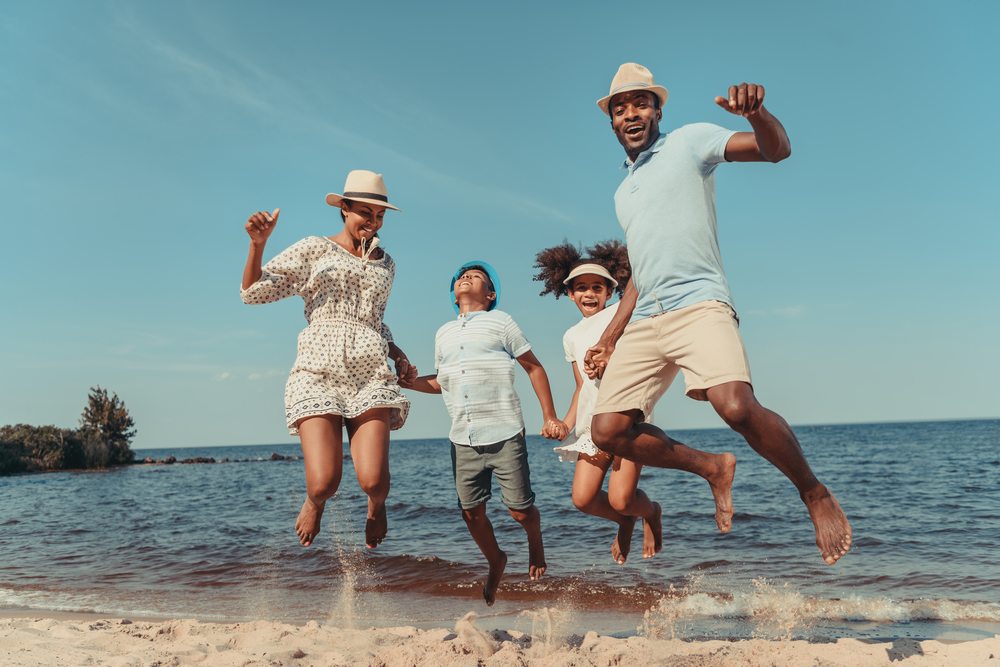Vacations May Add Years to Your Life!
In the US, close to one in four Americans receive no paid vacation or holidays, leading to a country known as the “no-vacation nation.”1
In contrast, countries like Australia and Japan require at least four weeks of paid time off for workers – and some, like France, guarantee six. Do they know something that those in the US are oblivious to?
Quite possibly, yes, as taking vacations isn’t a matter of mere frivolity; in stressful times like these, they can make or break your physical and mental health.
Vacations Help to Buffer the Toll of Stress, Increase Creative Thinking and More
Vacation time can be one of the best ways to not only relieve stress but to actually increase productivity and performance on the job. Assuming your vacation is a restful, restorative one (and not a source of stress in and of itself), taking time off gives you a valuable break from the everyday grind, a time to recoup and avoid burnout.
According to research from the University of Calgary, taking a vacation (or even participating in leisure activities) can significantly reduce depression.2
A separate study found sharing vacation experiences with your loved ones is a valuable contributor to family cohesion,3 whereas immersing yourself in a different culture may also foster creative thinking4 and improve well-being.5 Still other research by British research Scott McCabe has shown the following vacation benefits:6
Rest and recuperation from work
Provision of new experiences leading to a broadening of horizons and the opportunity for learning and intercultural communication
Promotion of peace and understanding
Personal and social development
Visiting friends and relatives
Religious pilgrimage and health
Subjective well-being
A Successful Vacation Is Key to Its Restorative Powers
Not all vacations are stress relieving and some may actually leave you more tired than you were to begin with, making you wish you could take a “vacation from your vacation.” Only you know what type of vacation will give you that feeling that you’ve truly gotten away from it all, but generally speaking there are some universal factors that tend to contribute to a restful time off:7
- Free time for yourself
- Warmer, sunnier location
- Good sleep
- Making new acquaintances
- Exercising during vacation
If you can find the time and the resources to do so, investing in regular vacations is money well spent, as it will support two things that money can’t buy: good health and happiness. Its ability to help relieve stress alone will pay for itself many times over, as stress plays a major role in your immune system, and can positively affect your blood pressure, cholesterol levels, brain chemistry, blood sugar levels, hormonal balance and numerous other biological processes. As the Examiner reported:8
“McCabe believes these positive benefits [of vacation] to be so strong that he recommends that families be given some form of financial assistance if they are unable to afford vacations on their own.”
My Top Travel Tips
In order to ensure your vacation helps your health instead of hindering it, the following general guidelines are highly recommended when you’re traveling. They will help you optimize your health and immune function, and by doing so, minimize your risk of becoming ill while on the road.
| Consume a diet that’s right for your nutritional type and rich in raw foods; avoid junk foods, processed foods, sugar and grains, which all can tax your immune system.
|
| Take 4-8 mg of astaxanthin for several weeks prior to flying, and continue taking it throughout your trip. Astaxanthin gives your immune system an enormous boost and is also a potent UVB absorber that can help reduce DNA damage. Astaxanthin may help protect you from the increased radiation you are subjected to while flying, and may even offer protection against any harmful radiation exposure from airport scanners.
|
| Get plenty of good quality sleep.
|
| Exercise regularly and effectively; when on a long flight, walk around frequently to prevent the risk of pulmonary embolism.
|
| Get adequate sunlight exposure to optimize your vitamin D level; if this is not possible, use a safe tanning bed or take an oral vitamin D supplement.
|
| Rehydrate with water, not soda, while traveling; most airlines offer bottled or canned sparkling water.
|
| Take a high-quality probiotic (good bacteria) and eat plenty of fermented foods like kefir and natto, which are natural sources of probiotics. A probiotic supplement can help prevent the constipation that many people get while traveling.
|
| Do a quick cleanup of your hotel room as soon as you check in. Simple precautions like wiping down faucets, handles and countertops, washing glasses, and removing a bedspread can reduce your risk of exposure to pathogens.
|
| Consider booking a night flight instead of a day flight. There is significantly less EMF exposure at night than during the day because the Earth blocks much of the sun’s radiation at night.
|
| Consider using an earthing/grounding pad while flying to help correct the bioelectrical disruption you experience when you are not in contact with the Earth’s surface.
|
| If you suffer from motion sickness, pack some fresh raw ginger root. Ginger is a wonderful natural remedy for nausea, as well as being a remedy for a number of other health problems.
|
| Address your stress; minimize it as much as possible. My favorite stress-busting technique is the Emotional Freedom Technique (EFT), which is like acupuncture without the needles. |
https://articles.mercola.com/sites/articles/archive/2013/05/09/taking-vacations.aspx





Leave A Comment